Peanut Allergies in Children

- posted: Mar. 01, 2022
In the past 15 years, we’ve seen a massive increase in the number of children with peanuts allergies, so it goes without saying that most parents are worried about giving their children peanuts; however, is the peanut a food to avoid, even in children that aren’t presenting with allergies? How do you know if your child has an allergy to peanuts? A pediatrician can provide you with the information you need on peanut allergies.
Is it safe to incorporate peanuts into my child’s diet?
Research shows that introducing a small number of peanut products to your baby’s diet may actually reduce their risk for an allergy. This means everything from adding a little bit of peanut butter to peanut powder to their food. You can introduce your child to peanut-based products at around 4-6 months old.
Is my child at risk for a peanut allergy?
It is important to recognize if your child is at high risk for a peanut allergy. If your child has an egg allergy or has severe eczema they may be more likely to have a peanut allergy and should be properly screened by a pediatrician, as even trace amounts of peanut products could cause a reaction. A skin or blood test may be performed to check your child’s response to peanuts and look for allergy signs.
What are the signs of a peanut allergy in children?
Symptoms can range from mild to severe, often coming on suddenly and lasting for hours. Mild symptoms may include hives on the face and mouth or a rash. Signs of a more severe allergic reaction include:
- Widespread hives
- Tongue or facial swelling
- Trouble breathing
- Wheezing
- Vomiting
- Swelling of the lips
If your child is experiencing symptoms of a severe peanut allergy it’s important to call 911 or to head to your local emergency room for immediate medical attention.
My child has a peanut allergy. Now what?
While there isn’t a way to cure a peanut allergy the best treatment option is to simply avoid consuming peanuts and peanut products. Your child’s pediatrician can provide you with an extensive list of products your child will need to avoid. Make sure that they also don’t share food with other kids at school. Your pediatrician may also prescribe an EpiPen, which is to be used if your child has a severe allergic reaction. Your pediatrician may also recommend that your child see a pediatric allergist who can provide further and more specialized recommendations.
If your child is showing signs of a peanut allergy, call your child’s pediatrician today to schedule an evaluation. If you simply have questions about incorporating peanuts into your child’s diet to reduce their risk for an allergy, your pediatrician can also provide you with expert advice.

- posted: Mar. 01, 2022
In the past 15 years, we’ve seen a massive increase in the number of children with peanuts allergies, so it goes without saying that most parents are worried about giving their children peanuts; however, is the peanut a food to avoid, even in children that aren’t presenting with allergies? How do you know if your child has an allergy to peanuts? A pediatrician can provide you with the information you need on peanut allergies.
Is it safe to incorporate peanuts into my child’s diet?
Research shows that introducing a small number of peanut products to your baby’s diet may actually reduce their risk for an allergy. This means everything from adding a little bit of peanut butter to peanut powder to their food. You can introduce your child to peanut-based products at around 4-6 months old.
Is my child at risk for a peanut allergy?
It is important to recognize if your child is at high risk for a peanut allergy. If your child has an egg allergy or has severe eczema they may be more likely to have a peanut allergy and should be properly screened by a pediatrician, as even trace amounts of peanut products could cause a reaction. A skin or blood test may be performed to check your child’s response to peanuts and look for allergy signs.
What are the signs of a peanut allergy in children?
Symptoms can range from mild to severe, often coming on suddenly and lasting for hours. Mild symptoms may include hives on the face and mouth or a rash. Signs of a more severe allergic reaction include:
- Widespread hives
- Tongue or facial swelling
- Trouble breathing
- Wheezing
- Vomiting
- Swelling of the lips
If your child is experiencing symptoms of a severe peanut allergy it’s important to call 911 or to head to your local emergency room for immediate medical attention.
My child has a peanut allergy. Now what?
While there isn’t a way to cure a peanut allergy the best treatment option is to simply avoid consuming peanuts and peanut products. Your child’s pediatrician can provide you with an extensive list of products your child will need to avoid. Make sure that they also don’t share food with other kids at school. Your pediatrician may also prescribe an EpiPen, which is to be used if your child has a severe allergic reaction. Your pediatrician may also recommend that your child see a pediatric allergist who can provide further and more specialized recommendations.
If your child is showing signs of a peanut allergy, call your child’s pediatrician today to schedule an evaluation. If you simply have questions about incorporating peanuts into your child’s diet to reduce their risk for an allergy, your pediatrician can also provide you with expert advice.
Pediatric Group Associates
1625 Avenue Of The Cities,
Moline, IL 61265
Our Sick Clinic is currently open 8 am to 10:45 am Monday through Friday (this is NOT a walk-in clinic).
We recommend using our self-scheduling link , appointment request link, or calling us before arriving at the office to reserve your time slot.
The sick clinic is for acute problems like rashes, insect bites, poison ivy, sunburn and ear pain. We continue to take additional precautions to ensure the safety and health of our patients and staff through the use of our mobile registration and gathering information in advance of your appointment.
Thank you for your continued patience and support as we strive to meet the ongoing needs of our community in the safest possible manner.
Our Moline office is open from 8 am to 1 pm and 2 pm to 5 pm Monday through Friday. We have limited Saturday availability for acute sick symptoms only through our Facebook self-scheduling link which will be posted each Friday evening by 7 pm CST. We do not have regular office hours on Sunday, however there is a provider on-call in case of emergencies.

